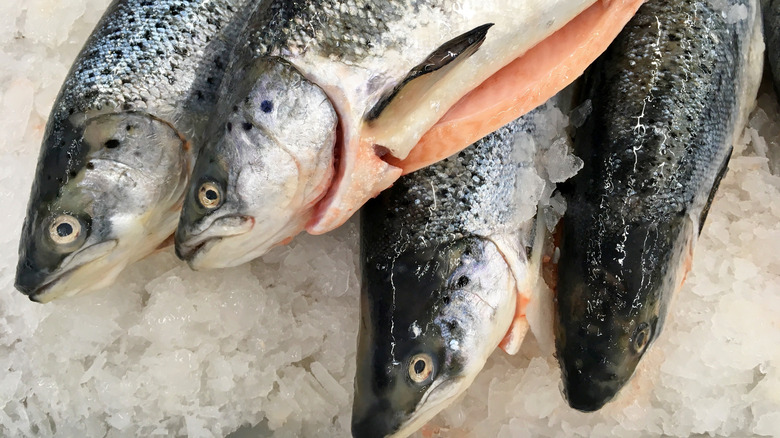Yes, Seattle Really Is Being Sued By Salmon. Here's Why
Salmon may not be able to file suit, but a Native American tribe has done so on their behalf, claiming three dams on the Skagit Rver in northwestern Washington are violating the rights of the fish. According to The Guardian, the Sauk-Suiattle tribe has filed their suit in tribal court, naming salmon — referred to as TsuladxW in Sauk-Suiattle's Lushootseed language — as the plaintiff, and the City of Seattle, which operates the dams, as the defendant.
The civil complaint is the third filed against Seattle by the Sauk-Suiattle, and in it the tribe claims that the dams obstruct their traditional way of life, preventing them from hunting and gathering salmon for food and tribal ceremonies. The suit also asserts, however, that the salmon themselves have an inherent right to "exist, flourish, regenerate, and evolve." Per KUOW, a public radio station in the Puget Sound region, the Gorge, Diable, and Ross dams, which were named in the suit, provide about 20% of Seattle's electric power.
Latest lawsuit in the 'rights of nature' movement
The suit by the Sauk-Suiattle is the latest instance of indigenous people pushing for environmental protections as part of the "rights of nature" movement. In 2021, for example, the White Earth Band of Ojibwe filed a similar suit against the state of Minnesota, seeking to protect the rights of wild rice against a pipeline project (via Inside Climate News).
"I think it's time for society and courts to consider not only treating those things that are actually beings as property. They are living beings," Jack Fiander, Sauk-Suiattle's attorney, is quoted as saying on King-5, a Seattle television station. "The fish are practically like part of the tribe. They're part of the nature. They're part of the whole world view of the tribe."
The movement began in the U.S. in 2006, when a Pennsylvania borough became the first to legally recognize the rights of nature, according to HuffPost. Inside Climate News observes that rights of nature laws are now in place in more than 30 localities across the nation.

